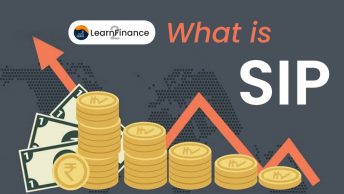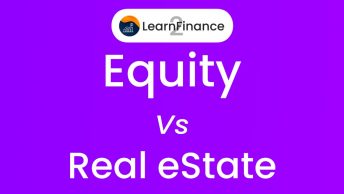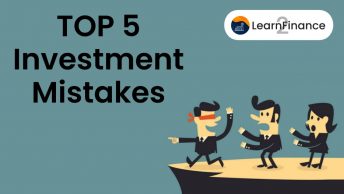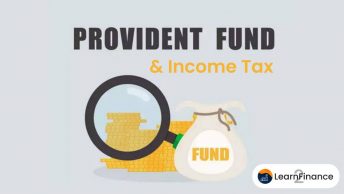Now, according to some people, a job of 50k a month is sufficient for financial independence whereas earning 50 lakh per month is not making it for some.
So, who is correct? Is Rs 50k with a good job enough to achieve financial independence? Is it true that even Rs 50 lakh is insufficient in this day and age?
Unfortunately, for the vast majority of people, the answer lies somewhere in the centre. Is it possible to be financially independent with just Rs 50k and a decent job? Yes, if you’re not unfortunate. All it takes is one poor break to destabilise your financial situation.
What is Financial Independence/Freedom ?
The word “financial independence” simply implies that you have enough funds to spend your life whatever you choose. For some, it simply means retiring at the age of 58 and spending more time with their family. For a few others, it is about being able to pursue their hobbies without having to worry about money. So it might be time spent with NGOs, pursuing a hobby, or even turning a passion into a job. Others may wish to keep workingbut on their own terms.
Living such a life without having to worry about how your needs will be met, or rather knowing that your wants will be fulfilled pleasantly, is financial independence.
It is critical to be debt-free. Having to pay EMIs when your income is no longer available is like retiring with a weight around your neck. It is not, by any means, independence. Plan your independence day so that you can pay off all of your bills before then. It takes a lot of planning to spend only what you can afford. As a result, the need to borrow would be minimised.
You must create a retirement nest egg that will cover your and your partner’s costs for the remainder of your lives. This is a complicated issue in and of itself, but the factors that influence the size of the corpus are your spending habits, the rate of inflation, and how you invest your savings after you retire, as well as the number of years you want the corpus to endure.
Factors to keep in mind before starting your Financial Independence journey:
- Family needs: If your children or other family members rely on you until maturity or have yet to complete their education, this corpus has to be gathered separately.
- Emergency fund: Set aside some cash to rely on in the event of an emergency – medical or otherwise – regardless of how much insurance you have.
- Vacation fund: You intend to travel until your last breath. Great. Simply make sure you have separate money for it. The size is determined by whether your journey is internal or international, luxury or cheap. Set the frequency of your travels. This quantity should be maintained separately so that its depletion does not interfere with your daily life.
- Maintenance fund: You must repair, remodel, repaint, and furnish your home on a regular basis.
- Depreciation fund: You may wish to change automobiles on a regular basis, as well as replace household equipment, laptops, phones, and so on. Unknowingly, you may wind up spending a lot of money on such items. It is preferable to prepare ahead of time for these purchases.
Don’t forget to take in cultural demands like giving when budgeting your post-retirement costs. Many people are reminded to consider contributing (charity) as well. The same is true for the expense of engaging in your interests. If you wish to follow an entrepreneurial goal, create a corpus for it so that the venture’s success or failure does not affect your retirement security.

Finally, as you become older, increase your budget for medical costs.
These lists may go on indefinitely. The longer the list, the more difficult the strategy. The more difficult the strategy, the longer it will take to build the corpus. The longer the time required, the more sacrifices you must make today. All of this begs the question, what is the true key to financial independence? It is, in fact, “contentment.” Limiting your desires and living a simple existence (not necessary as a monk!) leads to contentment. However, think like a monk. This way of thinking leads to less baggage to deal with in your life. The primary predictor of your financial freedom is striking a balance between necessity and want. It will ultimately affect your work-life balance, with unexpected consequences for the necessity for early retirement! This is the spiritual aspect of financial freedom, which I believe is just as essential as the money aspect.
How much money is needed to be financially independent in India?
The golden words, like with many other inquiries, maybe — IT DEPENDS.
It is largely determined by your lifestyle requirements and financial objectives.
Someone who lives a very modest lifestyle and has no big financial ambitions might require less. Nothing would satisfy someone who lives a rich and showy lifestyle.
But, we will in this article take an average Indian desirable lifestyle and goals.
Rs. 100,000 in monthly expenditures Education and a wedding for two children (Rs. 50 Lac for each event, at current costs) must be planned for, as well as the purchase of a property worth Rs. 1 Crore.
In this instance, you would want Rs. 3 Crore (30 Million) for “life events” and another Rs. 2 Crore (20 Million) to provide you with Rs. 100,000 each month at a rate of 6% per annum (assumed net effective returns). That means you may be financially independent if you had Rs. 5 crore now.
However, if your portfolio can provide a return of 10% per year (with a good mix of debt and high-performing equities), you may require Rs.1.2 Crore (12 Million) in passive income to handle your day-to-day costs. Also, if your portfolio increases at 10% per year and your anticipated big costs (school, wedding, etc.) rise at a slower rate, you may be able to budget a little less for your intended major expenses.
With annual yields of 12%, the corpus required for day-to-day costs rises to Rs. 1 Crore (10 Million).
Conclusion:
The figures above represent reaching absolute financial independence – the state of not having to work for money for the rest of your life. If that seems too far away, you could choose to aim for partial financial independence (where your assets can cover your most basic expenditures but you still need to supplement your income).
The traditional strategy for financial independence is to earn enough money, spend it wisely, save money, and invest wisely. Compounding may do wonders for you in the long term.
This is a journey that is not just financial, but also behavioural.



![10 [Must Read] Books on Personal Finance for Indian Investors 4 10 [Must Read] Books on Personal Finance for Indian Investors](https://learn2finance.com/wp-content/uploads/2021/09/10-Must-Read-Books-on-Personal-Finance-for-Indian-Investors-344x194.jpg)




